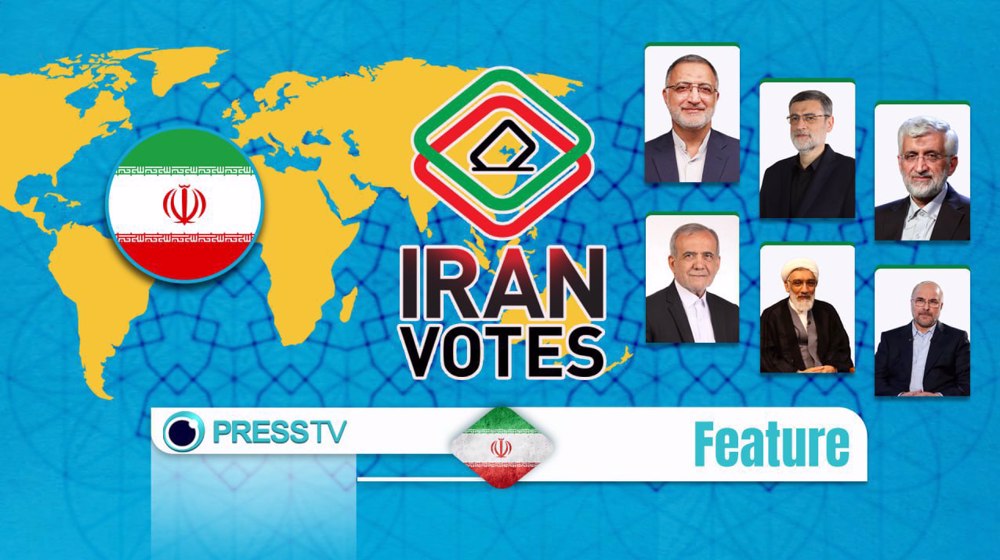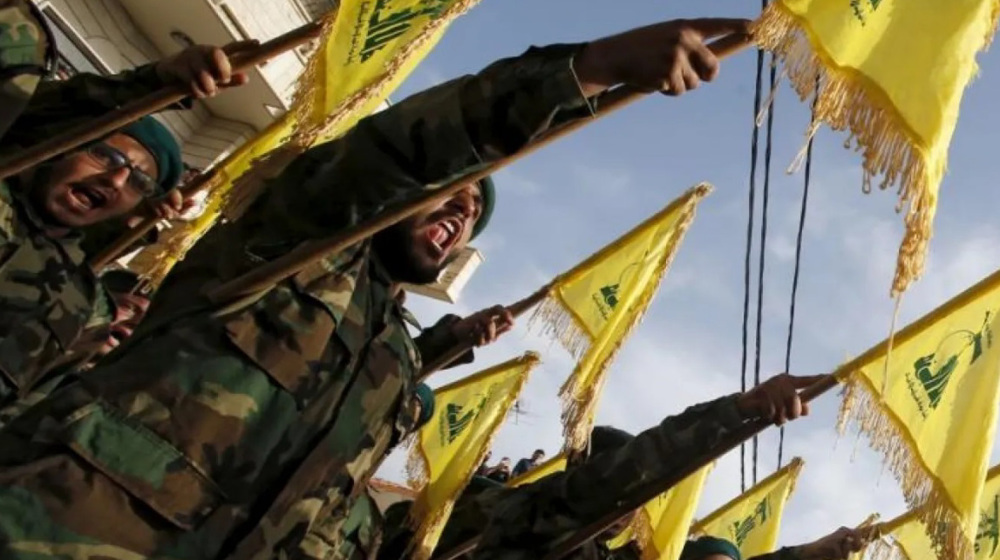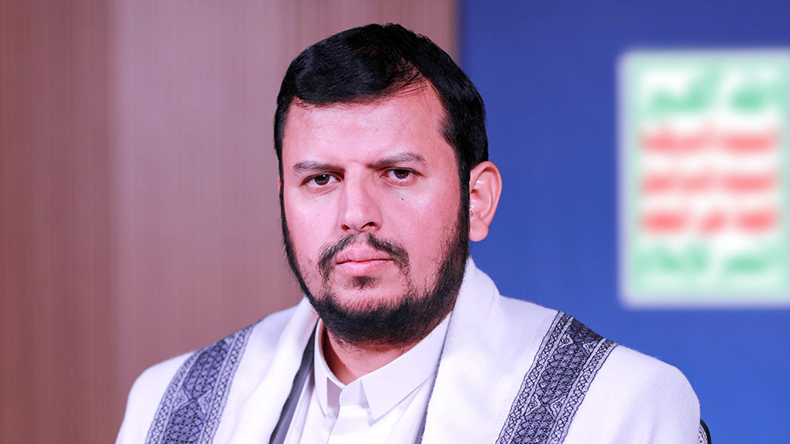Iran and the world: Foreign policy blueprints of six presidential candidates
By Alireza Akbari
Campaigning for the June 28 snap presidential election in Iran is in full swing, with six candidates in the fray pulling out all the stops to win voters' favor through meticulously devised programs and policies.
In the past week, since the campaign kicked off following the approval of candidates by the country’s top election supervisory body, one key area of focus for the hopefuls has been foreign policy.
The six candidates running for the top executive office of the Islamic Republic have used various televised programs and field events to articulate their visions for the country's foreign policy.
Almost all of them have praised President Ebrahim Raeisi’s East-centric foreign policy, which has borne fruit, while some have advocated for increased global engagement.
Jalili emphasizes harnessing global opportunities
During a live roundtable discussion held on Friday, Saeed Jalili, a former nuclear negotiator and head of the Supreme National Security Council, engaged in an interesting conversation centered on foreign policy matters.
Jalili highlighted the essence of his campaign slogan, "A world of opportunities, a mega leap for Iran," underscoring its pivotal role in his proposed four-year agenda as the potential president of the Islamic Republic.
Presidential candidate @DrSaeedJalili says if a president fully knows the capabilities of his own nation, he will not leave the country awaiting decisions of a certain person in a certain country. #IranVotes2024 pic.twitter.com/bOzOkomIzs
— Iran Election 2024 (@PressTVElection) June 15, 2024
He emphasized the necessity of capitalizing on global opportunities while addressing threats through collaborative and diplomatic engagements with nations worldwide.
Delving into the evolving political landscape of the West Asia region following the launch of Operation Al-Aqsa Storm last October by the Palestinian resistance, Jalili underscored the potential opportunities for the Islamic Republic amid regional transformations.
He stressed the need for foreign policy endeavors to directly benefit the Iranian people, emphasizing the importance of seizing global opportunities to enhance the nation's well-being.
The veteran politician highlighted the potential for economic advancement through strengthened relations with neighboring countries and the importance of adopting a pragmatic approach in foreign relations.
He pointed to the abject failure of the 'maximum pressure policy' against the Islamic Republic adopted by former US President Donald Trump and continued by his successor Joe Biden during the tenure of the late Iranian president.
This policy was introduced after the United States unilaterally withdrew from the Iran nuclear deal, formally known as the Joint Comprehensive Plan of Action (JCPOA), in May 2018 despite Iran full complying with provisions of the multilateral pact.
Jalili also referenced US Secretary of State Antony Blinken's acknowledgment of the increase in Iran's oil sales during a US Senate session as another indication of the failure of Washington's hardnosed Iran policy.
Qalibaf likens his foreign policy to President Raeisi
In his appearances on IRIB during live programs this past week, Mohammad Baqer Qalibaf, the speaker of the Iranian parliament and a presidential hopeful, also expounded on his foreign policy perspectives.
He underscored the myriad of challenges and pressures faced by the Islamic Republic since the Islamic Revolution in 1979 and asserted that the nation has ascended to a prominent position in the geopolitical arena.
During a televised debate, Iranian presidential candidate Mohammad Baqer Qalibaf outlined his foreign policy views, explaining the key priorities he would pursue if elected. Here are his main points.#IranVotes2024 pic.twitter.com/0EKeGUlpVK
— Iran Election 2024 (@PressTVElection) June 16, 2024
In one of the televised sessions, the veteran politician and former Tehran mayor referred to unfinished foreign policy initiatives and promised that his administration would take them forward with full vigor.
In an interview with Al Alam News Network of the IRIB World Service, Qalibaf outlined his potential future government's strategy to counter Western sanctions against the Islamic Republic and protect Iranian interests.
He remarked that the JCPOA served as an instructive example in shaping foreign policy with the US and asserted that the agreement became a meaningless document after US withdrawal, revealing Washington's self-serving agenda and lack of integrity, thereby rendering them untrustworthy.
He likened his approach to President Raeisi's policies, prioritizing relations with "neighboring and Islamic countries," as well as focusing on security and economic cooperation in the Persian Gulf region.
Describing the recently restored ties with Riyadh as instrumental in regional stability and progress, Qalibaf identified opportunities for collaboration to resist common adversaries.
He also emphasized the importance of cooperation with Iraq for mutual security.
Further, the seasoned lawmaker echoed the founder of the Islamic Revolution Imam Khomeini's sentiment that the Palestinian cause is not just an Islamic issue but a global concern rooted in humanity, freedom, and justice.
He characterized Operation Al Aqsa Storm, which came as a big surprise to the Tel Aviv regime and its Western backers, as a pivotal moment in world history.
Qalibaf said the plight of Palestine transcends the boundaries of the Islamic Ummah, resonating with the entire world as an issue of humanity, freedom, and resistance against tyranny.
Highlighting the significance of the resistance front, the former Air Force commander of the Islamic Revolution Guard Corps (IRGC) described it as a multifaceted front encompassing geographical, ideological, and strategic dimensions.
He affirmed his commitment to defending and upholding the resistance front, if elected as president.
Qalibaf further stated that strategic action and protecting the interests of the Iranian nation will be the basis of his government.
Also, during the Sunday televised roundtable, the candidate said Iran's approach to the East is a civilizational one, emphasizing that the Islamic Republic should use the capacities of Asia and Eurasia.
Pezeshkian advocates foreign policy rooted in diplomacy and dialogue
Masoud Pezeshkian, the former health minister and one of the six presidential candidates, participated in a roundtable on Friday and outlined a vision rooted in both personal insights and national service.
The seasoned parliamentarian from the northeastern city of Tabriz envisaged a future characterized by collaboration, empathy, and a shared national vision.
He stressed unity and mutual trust as fundamental pillars for driving meaningful societal progress.
Advocating a transformative approach, he placed particular emphasis on the pivotal role of youth and collaboration in steering the country's trajectory toward positive change both nationally and globally.
Pezeshkian’s stance on foreign policy, however, is slightly different from other candidates in a way that he prefers increased interaction with the outside world.
He advocates for a strategy grounded in diplomacy and dialogue, rejecting confrontational approaches on the global stage.
In his live TV appearances and interviews this week, he strongly emphasized the power of dialogue as a potent tool for fostering understanding and cooperation.
Pourmohammadi's foreign policy is extension of domestic policy
Mostafa Pourmohammadi, who previously held ministerial portfolios in different administrations, also provided a sneak peek into his government's foreign policy agenda during televised roundtables.
He asserted that foreign policy is an extension of domestic policy, emphasizing that a nation capable of securing its borders effectively can also achieve success on the international stage. According to the presidential candidate, effective communication fulfills most of the country's requirements, stressing the importance of continuity across various domains, while prioritizing security and economic interests.
"The Issue of Palestine is the symbol of Islamic Republic's diplomacy"
— Iran Election 2024 (@PressTVElection) June 14, 2024
Presidential candidate @mopourmohammadi says the issue of Palestine is about the domination of the West over the interests of the region. pic.twitter.com/ctEuFKlCBz
In one televised program, he affirmed that the Islamic Republic "must engage with the global community, fulfilling its responsibilities to defend the rights of the oppressed and strengthen the axis of the oppressed against oppressors."
"You cannot wield diplomatic influence without national power," he hastened to add, underscoring the necessity of enhancing internal strength to achieve diplomatic objectives.
Pourmohammadi highlighted the importance of intelligence and strategic action in regional spheres, advocating for alliances, both small and large, and the deployment of seasoned diplomats and experts committed to national interests and well-versed in global affairs and the ideals of the Islamic Revolution.
Zakani positions Iran as a pivotal player in the region
During a televised roundtable on Saturday, Alireza Zakani, Tehran's Mayor and former senior lawmaker, also outlined his potential government's approach to foreign policy, emphasizing an idea-oriented strategy rooted in dignity.
Presidential candidate @arzakani4 says Iran's all-out progress must be boosted through diplomacy, scientific and economic tourism and by getting assistance from Iranians abroad. #IranVotes2024 pic.twitter.com/CTANusutig
— Iran Election 2024 (@PressTVElection) June 15, 2024
Zakani underscored the paramount importance of foreign policy in governmental priorities, citing the significant role of Iranian Islamic culture in the West Asia region.
Reflecting on Iran's Operation True Promise, which came in response to the Tel Aviv regime’s dastardly attack on the Iranian consulate in Syria, he highlighted how it bolstered Iran's credibility worldwide.
"In today's global landscape, it's imperative to carve out a distinctive position for ourselves. My foremost goal in foreign policy is to champion human dignity and foster happiness," Zakani remarked.
Addressing Iran's strategic geographical location in West Asia, Zakani stressed the strategic significance of the North-South Transport Corridor, advocating its utilization for the mutual benefit of regional nations.
He outlined plans to enhance neighborly relations, deepen the Axis of Resistance, promote cultural unity with nations, and foster unity with neighboring governments, including Saudi Arabia.
Zakani proposed defense and security pacts with neighboring countries, positioning Iran as a pivotal player in the Caucasus region, Yemen, Lebanon, and Iraq.
"We should also leverage our €13 billion partnership with China in foreign financing for other sectors," Zakani asserted.
Highlighting Iran's potential, Zakani envisioned a strategic alliance with Russia and China, forming an equilateral triangle that could create exclusive conditions beneficial to the country.
Ghazizadeh Hashemi pledges to emulate foreign policy of Raeisi admin
During Saturday morning's press conference, Seyyed Amir-Hossein Ghazizadeh Hashemi, a former parliamentarian now at the helm of the organization overseeing veterans' and martyrs' families, articulated his foreign policy mantra as "gentleness with allies and tolerance with foes," underscoring its alignment with the late President Raeisi's approach.
Ghazizadeh Hashemi emphasized that this ethos, coupled with robust power projection and defense of the oppressed, forms the cornerstone of effective diplomacy.
He emphasized prioritizing the strategic outlook towards the East and fostering neighborly relations in Iran's foreign policy agenda, in line with the Raeisi administration’s policy that proved effective.
The presidential candidate also advocated for dignified and authoritative negotiations.
Ghazizadeh Hashemi hailed late Foreign Minister Hossein Amir Abdollahian as a pivotal figure who successfully diffused tensions with neighboring countries, including Egypt, and highlighted Iran's staunch defense of Gaza during his tenure as the top diplomat.
He pledged to emulate Amir Abdollahian's path in foreign policy affairs.
Ghazizadeh Hashemi further outlined Iran-Russia ties on two levels: firstly, bolstering cooperation within international forums where both nations are stakeholders and sharing common political stances vis-à-vis the United States and its allies.
Secondly, he acknowledged existing alliances in defense and politics but pointed to incomplete integration in economic and cultural domains.
He further advocated for forging comprehensive agreements between the public and private sectors to establish industrial and common markets, signaling a proactive stance towards deepening economic ties between Iran and Russia.
Iran slams Israeli attacks on Lebanon, warn UNSC’s inaction to embolden regime
Iran says has ‘no choice’ but to fight back, holds no enmity toward American people
Bahraini police assaults crowds mourning loss of Ayatollah Khamenei
Iran posed no imminent threat to US: Pentagon tells Congress
Iran will hold no negotiations with US: Larijani
Despite Leader's martyrdom, Islamic Republic firmly in control and punishing the enemy
At least 31 killed in Israeli aggression on southern Lebanon after Hezbollah strikes
Iran writes to UN, warns about dire consequences for perpetrators following Leader's martyrdom










 This makes it easy to access the Press TV website
This makes it easy to access the Press TV website